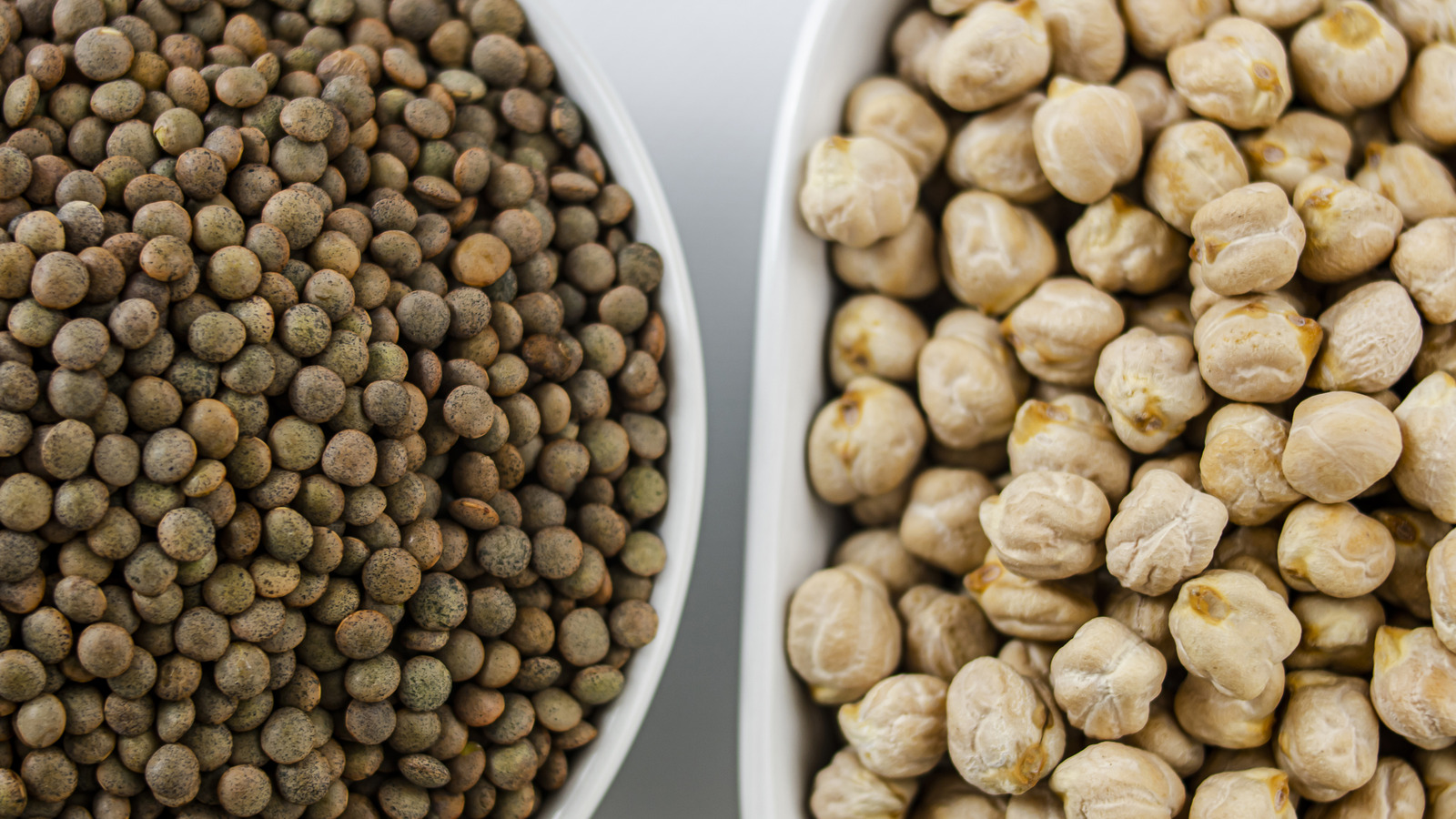
"While the exact level varies depending on the type of lentil, the average cup contains nearly 18 grams of protein - making them the more protein-rich legume compared to chickpeas. In fact, lentils are typically made up of about 25% protein, which is the same composition as lean beef. They're also packed with iron, magnesium, and B vitamins. On top of all of that they contain fiber and, according to a 2017 study, are associated with lowering the risk of heart disease."
"However, chickpeas stand up in their own right, too. A 1-cup serving provides 14 ½ grams of protein, which would still make a good dent in the overall recommended daily intake. Chickpeas also support the body with a variety of vitamins and minerals, including manganese, iron, and folate. A 2016 study suggests that they support blood sugar regulation and help lower the risk for some chronic diseases."
"You can add both lentils and chickpeas to many meals, whether that's in addition to meat or as a replacement for it. Try out a vegan Bolognese sauce with lentils instead of the beef, whip up a bowl of easy spiced lentils to serve with grains or tortillas, or make some lentil-walnut tacos for your next Taco Tuesday. Lentil-based soups and stews also make for a delicious filling meals, or you can just toss some cooked lentils into a salad or casserole."
Lentils and chickpeas are inexpensive, versatile legumes that supply significant plant-based protein. Lentils average nearly 18 grams of protein per cup and comprise about 25% protein, comparable to lean beef, while also offering iron, magnesium, B vitamins, and fiber and being associated with reduced heart disease risk in a 2017 study. Chickpeas provide about 14½ grams per cup and supply manganese, iron, and folate, with a 2016 study linking them to improved blood sugar regulation and lower chronic disease risk. Both legumes can be added to meals as meat replacements or complements in sauces, soups, salads, and tacos.
Read at Tasting Table
Unable to calculate read time
Collection
[
|
...
]